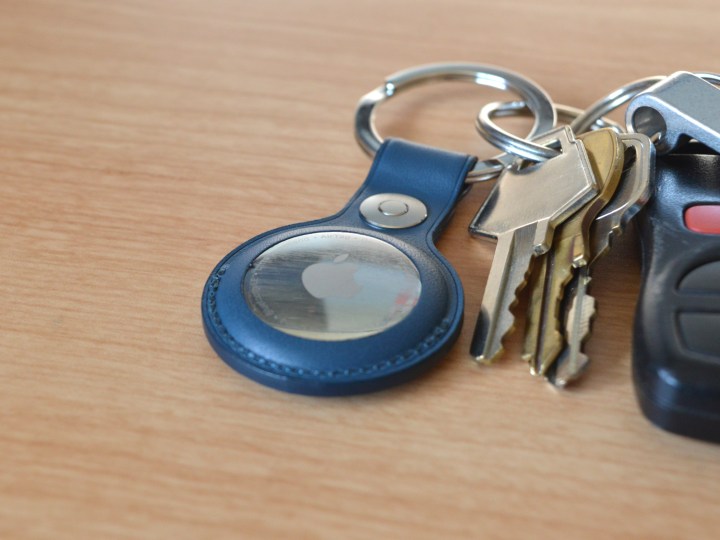Apple raised some eyebrows late last year when the company revealed that it actively works with law enforcement officials in cases involving the misuse of its object tracker. The admission came after a litany of cases where AirTag trackers were exploited for stalking and theft. Apple even got slapped with a lawsuit for the whole drama. But it appears that other government agencies have also grown a taste for deploying AirTag trackers to assist with their investigations.
According to Forbes, the Drug Enforcement Agency (DEA) recently used an AirTag for surveillance in a case that potentially had an illicit narcotics manufacturing angle. Citing an official search warrant, the report notes that border agents intercepted a package coming in from China that contained a pill press machine used to turn chemical powders into a pill.

The DEA was called in to have a look, but instead of the traditionally obvious method of directly tracking the package’s assigned destination and recipient, the agency went with Apple’s location tracker. The agency, which works under the aegis of the U.S. Department of Justice (DOJ), secretly placed an AirTag inside the pill press.
Unfortunately, we don’t know if anything came out of the AirTag-assisted DEA operation. But the key takeaway here is that it marks the first reported case where Apple’s mass-market device intended strictly for safe consumer usage has been deployed for legal surveillance by a government agency.
The search warrant simply mentioned that the AirTag hidden in the suspicious pill press package will let the DEA access “precise location information,” offering the investigators critical information like illicit drug manufacturing spots and the network linked to it.
A key benefit of deploying AirTags is that they are easy to hide and deploy, compared to high-end surveillance gear, which can be complex to operate and difficult to plant covertly. Plus, there are hundreds of millions of devices logged on to Apple’s Find My network, which makes it easier to trace the location of any AirTag with a worryingly high level of convenience.
However, AirTags come with their own set of safeguards following a heck ton of critical brouhaha, ensuring their abuse potential can be minimized. For example, an iPhone would automatically send an alert if an unknown AirTag is nearby, followed by an audio cue generated by the tracker’s in-built speaker.
Irrespective of the DEA’s AirTag monitoring act and whether the operation proved to be a success, the report sheds light on yet another alarming usage of a device that was originally launched with innocent intentions like tracking your bag or keeping an eye on an overzealous pet.
Editors' Recommendations
- Samsung may be getting ready to launch a new AirTag rival this year
- The EU is preparing an App Store change that Apple won’t like
- AirTag helps flyer find his AirTag – but not his missing wallet
- Forget AirPods — here’s why I use Samsung earbuds with my iPhone
- Twitter bans, then unbans account tracking Elon Musk’s jet



